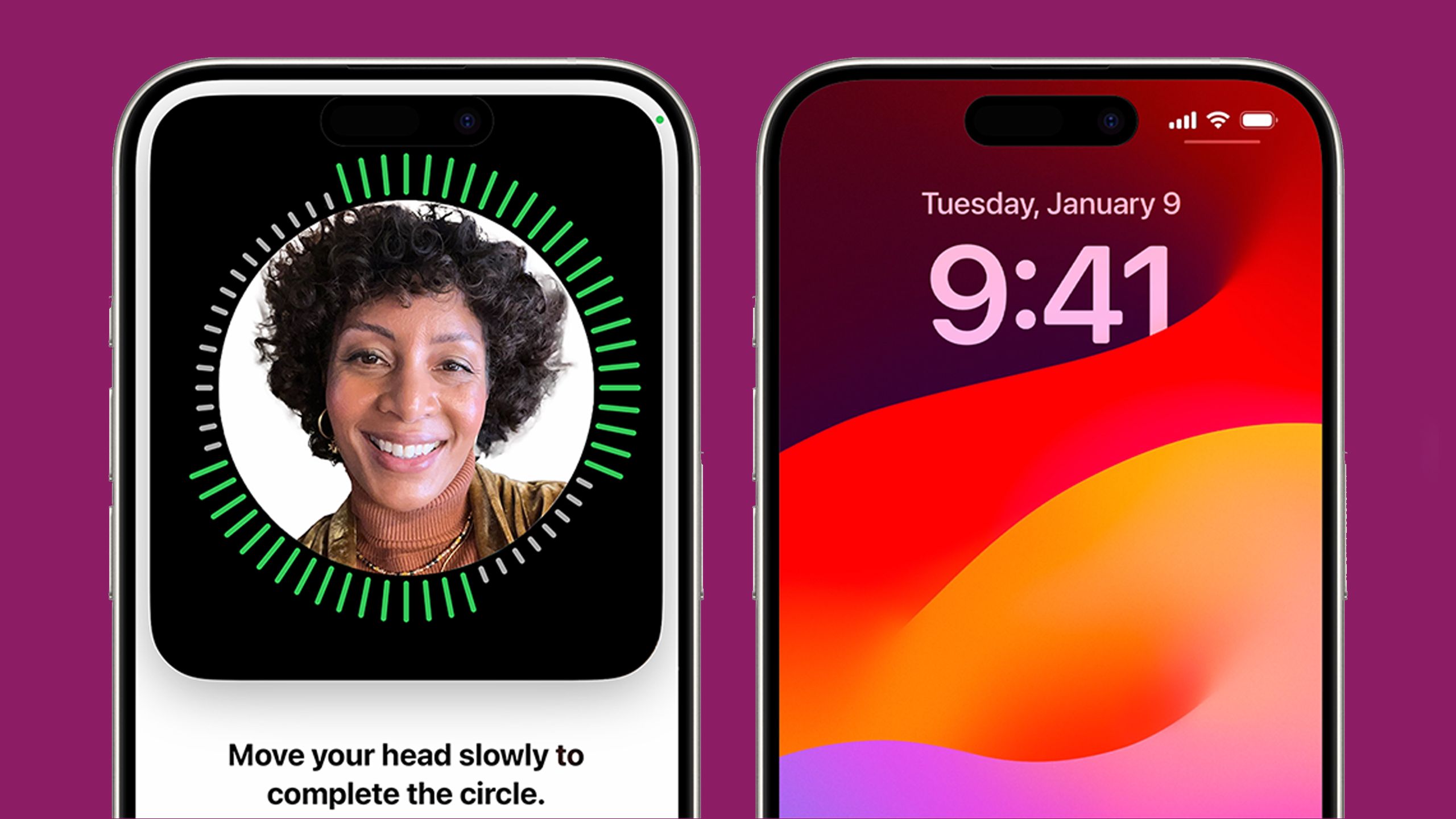Summary
- A new patent filed by Apple shows the company may have solved how to implement Face ID underneath a display.
- Apple’s patent involves removing certain subpixels, without affecting image quality, to allow infrared light to pass through the display more effectively.
- The technology could be implemented on some iPhone 17 models, but its possible its been delayed until 2026.
Face ID on the iPhone could be about to become more advanced. Apple has recently been granted a patent for new technology that allows it to embed its Face ID technology underneath the iPhone’s display.
The patent, which was first spotted by Patently Apple, contains “methods and configurations for improving the performance of sensors under a display.” However, it remains unclear when this technology will be implemented.
Face ID uses infrared light to scan your face to unlock your device. Apple’s biggest challenge with getting Face ID to work under the display is getting infrared light to travel through the screen’s pixels and glass effectively.
Related
The Galaxy Note 7 was ahead of its time, even if it exploded sometimes
It’s easy to forget what a great smartphone the Galaxy Note 7 was given the controversial situation surrounding the 2016 device.
How will Apple achieve this?
It’s possible this technology could be implemented in an iPhone soon
Apple / Pocket-lint
Based on the patent, Apple’s idea is to remove some subpixels to allow infrared light to pass through better. Each pixel on the display contains a subpixel which emits either a blue, red, or green light. These subpixels combine to create the millions of colors that can be displayed on an iPhone’s screen. The patent theorizes that by turning off certain subpixels, the infrared light will be effectively able to pass through the gaps.
According to the patent, there should be no difference in picture quality with certain subpixels removed, as it will align any removed subpixels with an adjacent subpixel that is the same color. The 37-page patent document also notes that it’s possible to remove small parts of the touch-sensitive mesh under the screen to allow for infrared light to pass through, without affecting the touch screen’s reliability or responsiveness.
It’s possible we could see this technology implemented on some of the iPhone 17 models. Back in 2023, display analyst Ross Young shared on X that it could come in 2025. However, he later reported that it was possibly pushed back. Apple is rumored to have plans to release an iPhone 17 Air this year, with a new sleek design, which could be a testing ground for this technology.

Related
A new Galaxy S25 leak gives us our best look at the phone yet
With the Galaxy S25 series reveal just a week away, new leaks are giving us a look at the phone’s potential look and price.
















